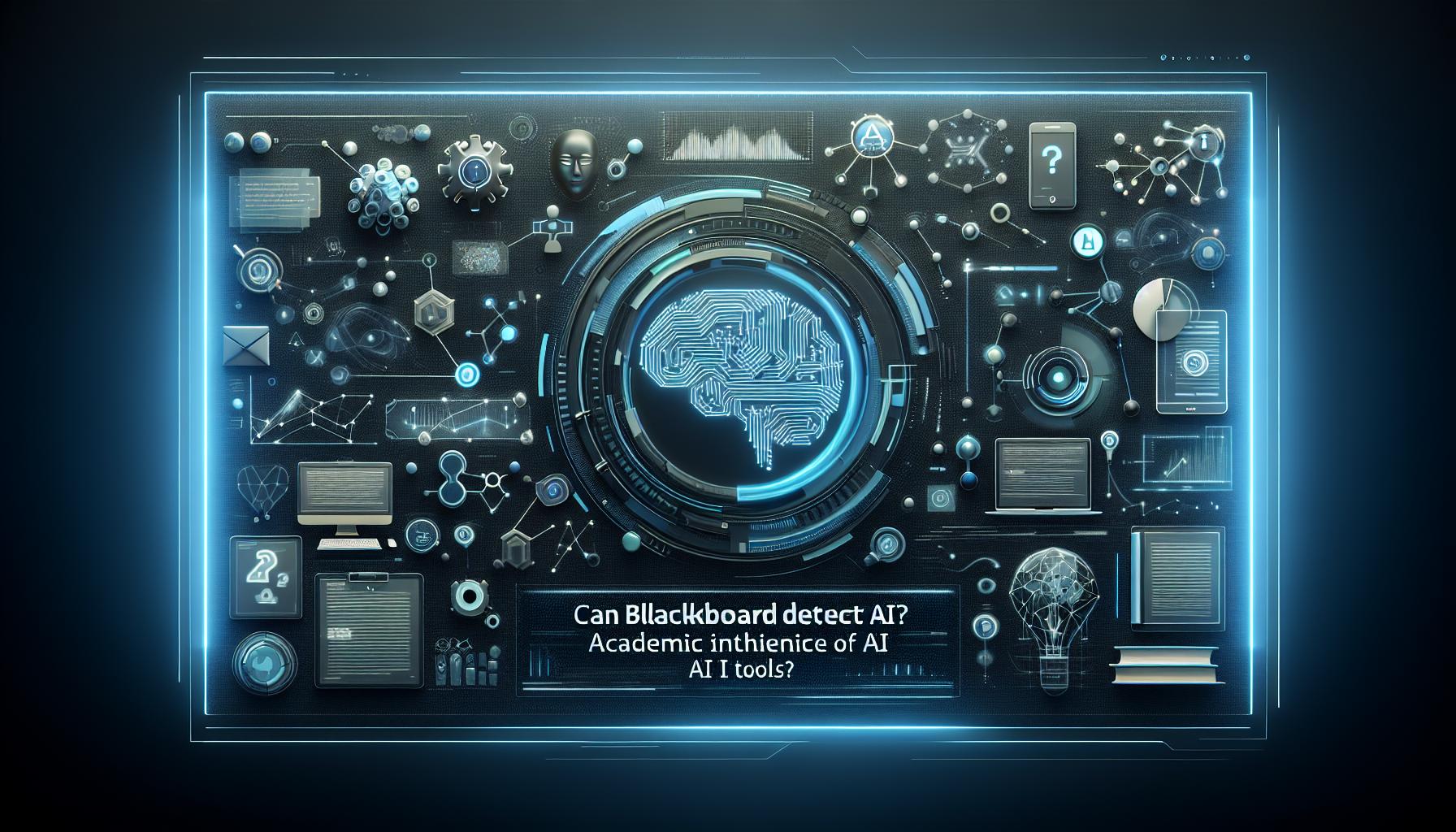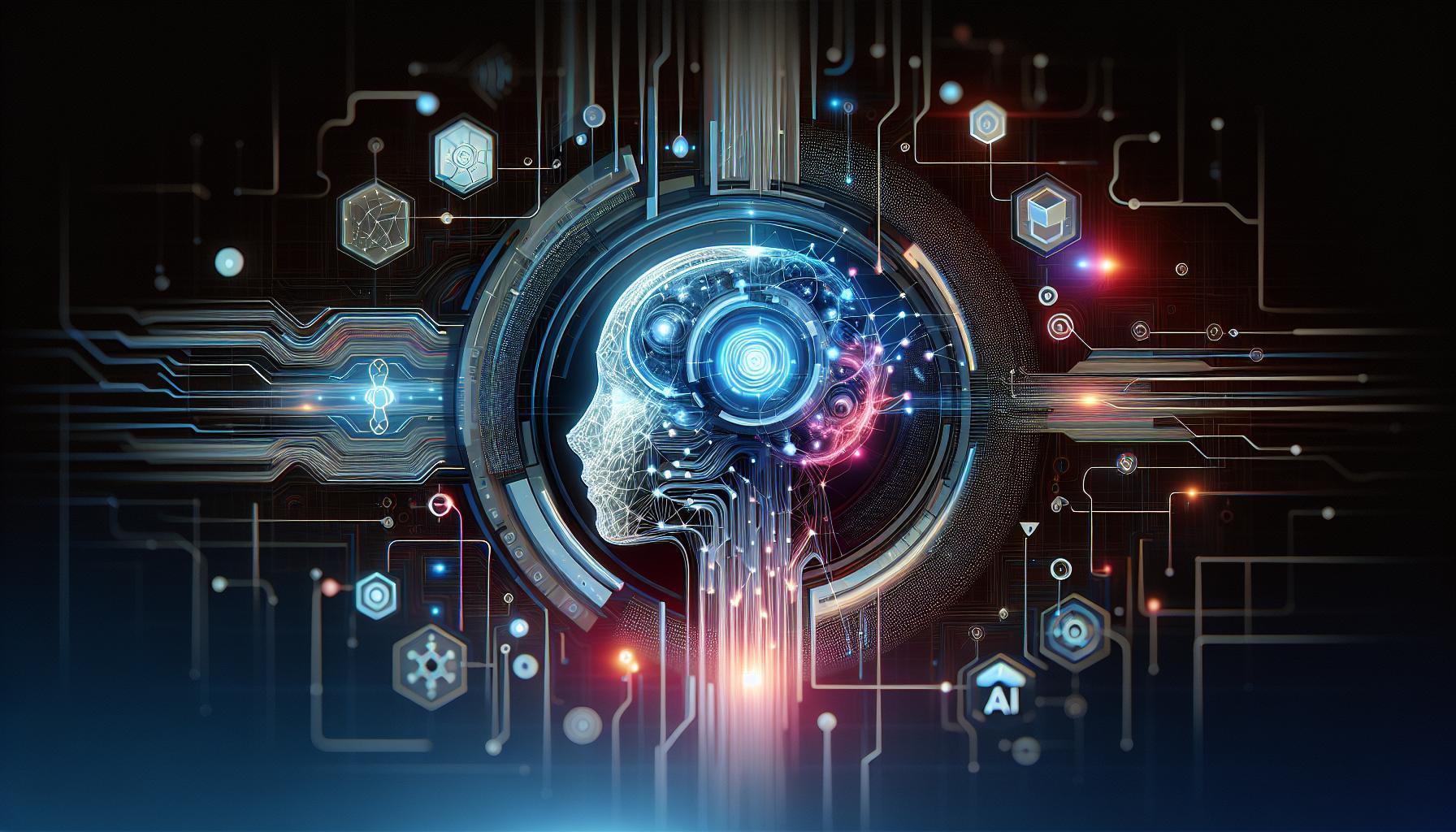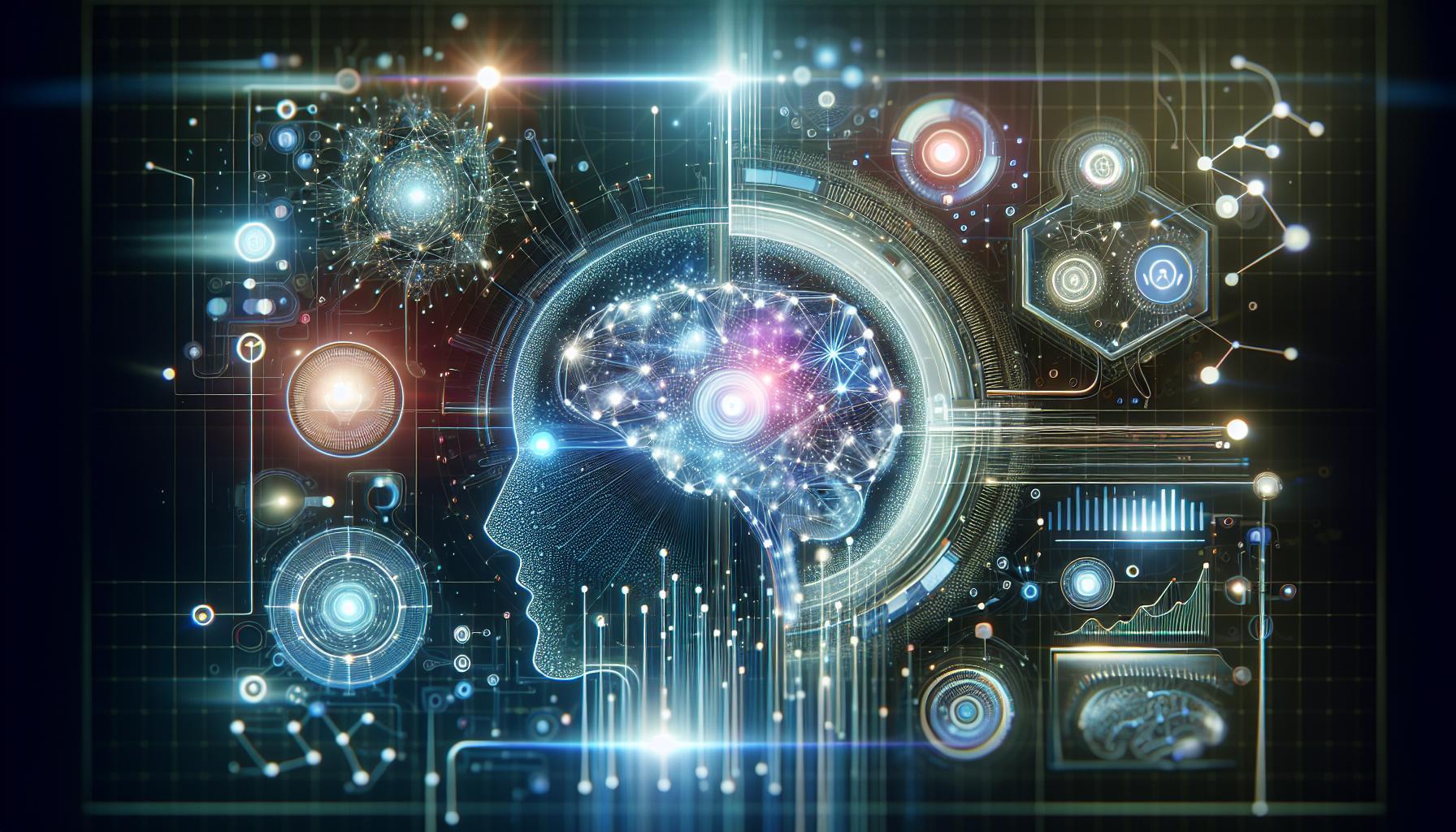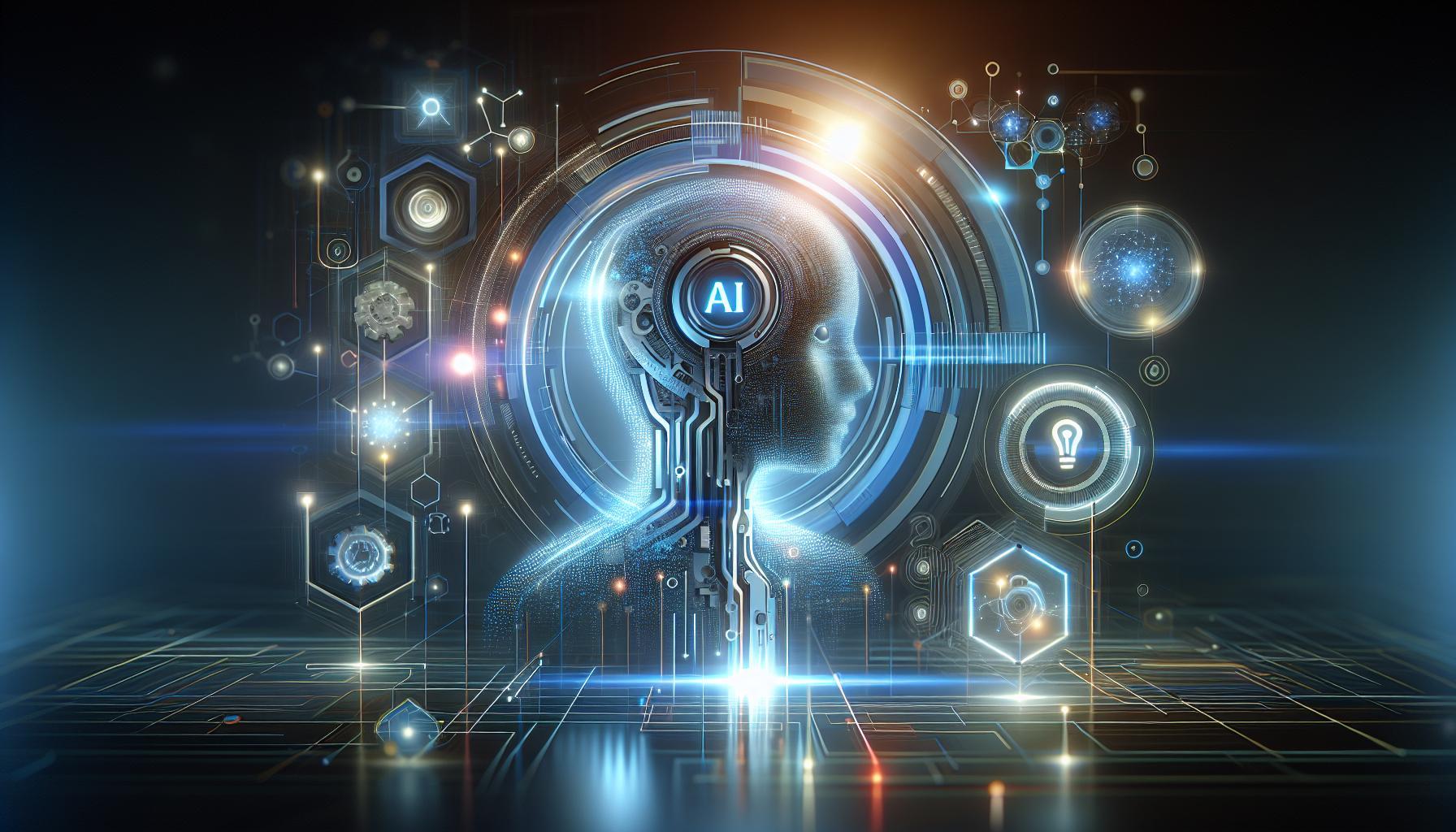As advanced AI tools become increasingly prevalent in academic settings, educators face a pressing concern: how to uphold academic integrity amidst rising instances of AI-generated work. Understanding whether platforms like Blackboard can detect such technology is crucial for institutions striving to maintain fair assessment practices. Exploring this challenge is vital for fostering trust and upholding standards in education.
The Role of AI Tools in Modern Education: Benefits and Challenges
In an era where technology evolves at lightning speed, the integration of AI tools in education has become both a powerful ally and a potential adversary for academic integrity. As students increasingly leverage these tools, educational institutions grapple with the critical question: Can Blackboard detect AI? This concern is not merely technical; it embodies the broader implications of maintaining academic integrity in a landscape rich with digital resources.
Benefits of AI Tools in Education
AI tools provide a multitude of benefits that can enhance the learning experience, including:
- Personalized Learning: AI can tailor educational content to meet the specific needs of each student, addressing their strengths and weaknesses.
- Efficiency: Automated grading and feedback systems can save educators time, allowing them to focus on more impactful interactions with students.
- Accessibility: AI technologies can help break down barriers for students with disabilities, offering resources that cater to diverse learning needs.
- Engagement: Interactive AI tools can foster higher engagement levels among students, making learning more dynamic and interactive.
The use of these tools, however, raises important questions about how institutions like Blackboard address academic integrity in the age of AI. As students utilize AI for tasks such as writing assignments or solving complex problems, educators must consider how to evaluate authentic student work.
Challenges Facing Educational Institutions
While the advantages of AI tools are clear, they come with significant challenges that educators must navigate:
- Plagiarism and Academic Dishonesty: The ease of accessing AI-generated content raises concerns about originality and authenticity. This situation necessitates robust detection mechanisms.
- Dependence on Technology: Students may become overly reliant on AI tools, which can hinder critical thinking and problem-solving skills.
- Equity in Access: Not all students have the same level of access to advanced technology, potentially widening the achievement gap.
- Ethical Considerations: The use of AI introduces ethical dilemmas regarding student data privacy and the implications of automated grading systems.
To effectively address these challenges, institutions must develop comprehensive strategies to integrate AI tools while preserving academic integrity. This includes investing in technologies that can potentially detect AI-generated work and fostering an educational culture that emphasizes critical thinking and originality.
By understanding both the benefits and challenges posed by AI tools in education, stakeholders can cultivate an environment where innovation enhances learning without compromising academic honesty. The ongoing dialogue about Can Blackboard detect AI? signifies a crucial step toward finding that balance.
What Happens When AI is Detected? Consequences for Students
The rapid advancements in artificial intelligence have revolutionized the landscape of academic integrity, raising critical questions about ethics in education. As institutions increasingly adopt AI detection tools, students must navigate a new realm of consequences for academic dishonesty. Understanding what happens when AI is detected can empower students to make informed choices about their academic conduct.
When students submit work that is flagged by AI detection systems like those integrated into platforms such as Blackboard, the implications often extend far beyond a mere notification. First and foremost, students may face academic penalties which can vary by institution but typically include:
- Failing Grades: Assignments identified as unoriginal may receive a zero, significantly impacting overall course performance.
- Course Failure: Repeat offenses or serious cases of misconduct can result in failing the entire course.
- Disciplinary Actions: Institutions may pursue formal disciplinary measures, including academic probation or expulsion.
These potential repercussions highlight the importance of ethical academic practices and the need for students to be aware of their institution’s policies regarding AI use. A failure to comply with these standards can lead to a barrage of negative outcomes that extend beyond mere academic penalties.
Real-World Examples of Consequences
Several universities have implemented strict policies surrounding the use of AI-generated content. For instance, at a prominent university in the United States, a student was found to have submitted an AI-assisted paper, resulting in an academic integrity hearing. The outcome included a formal reprimand and a requirement to complete an ethics course. This case exemplifies not just the immediate impact on grades, but also the long-term effects on a student’s record, which can influence future educational or career opportunities.
Consequently, students are encouraged to familiarize themselves with their educational institution’s stance on AI tools and adhere to best practices in academic integrity. Here are additional actionable steps to mitigate risks associated with AI detection:
- Understand the Rules: Always read and comprehend your institution’s academic integrity policy to know what’s acceptable.
- Use AI Responsibly: If utilizing AI tools for research or writing, ensure that any generated content is significantly edited, cited properly, and used as a supplementary resource rather than the primary source.
- Focus on Original Thought: Develop your unique voice and insights, which cannot be replicated by AI, to enhance the authenticity of your work.
In this evolving academic landscape, vigilance and integrity remain crucial. By understanding the consequences associated with AI detection, students can safeguard their educational journey while harnessing technology as a tool for learning rather than a shortcut for dishonesty.
Exploring the Technology Behind AI Detection in Educational Platforms
In an era where digital learning environments are evolving rapidly, the question surrounding the identification of AI-generated content in educational platforms has become increasingly significant. As institutions strive to uphold academic integrity amidst the proliferation of AI tools, understanding the technology behind AI detection is crucial. Platforms like Blackboard are not only enhancing learning experiences but also embedding sophisticated mechanisms to combat academic dishonesty.
Mechanisms of AI Detection
The technology used in AI detection typically involves a combination of machine learning algorithms, natural language processing (NLP), and data analysis techniques. These systems work by analyzing submissions for patterns that are characteristic of AI-generated text. Here are some of the key components involved:
- Machine Learning Algorithms: These algorithms are trained on large datasets of both human-written and AI-generated content, allowing the system to recognize intricacies and nuances typical of each type.
- Natural Language Processing: NLP helps the detection systems understand grammar, syntax, and semantics in context, enabling them to identify unnatural phrasing and odd sentence structures commonly found in AI outputs.
- Cross-referencing with Databases: AI detection tools often compare student submissions against known databases of AI-generated content, increasing their accuracy and reliability.
Real-World Impact and Practical Considerations
Implementing robust AI detection technology has far-reaching implications for both educators and students. For example, when a university uses such tools in its Blackboard system, it can enhance trust in academic submissions, ultimately leading to a culture of integrity. Here’s how institutions can make the most of this technology:
| Strategies for AI Detection | Benefits |
|---|---|
| Regularly Update Detection Algorithms | Improves accuracy as AI technology evolves. |
| Provide Training for Instructors | Equips educators with the skills to identify AI use and promote academic honesty. |
| Implement Clear Policies | Sets expectations for students, reducing the likelihood of misuse. |
Students must also approach their work with a heightened sense of integrity. Utilizing AI as a learning aid, rather than a shortcut, can enhance their educational experience and foster a deeper understanding of the material. By promoting proper engagement with technology, educational institutions encourage a responsible approach to learning in the age of AI tools, ensuring that questions like “Can Blackboard detect AI?” remain relevant yet addressable with constructive practices.
Educators’ Perspectives: Navigating AI Tools in the Classroom
Navigating the integration of AI tools in the classroom presents a unique set of challenges and opportunities for educators. With the rise of sophisticated technologies, questions about academic integrity are more pronounced than ever. In the newer landscape of education, where tools like AI writing assistants and automated grading software are becoming commonplace, educators find themselves at a crossroads. Can platforms like Blackboard effectively detect AI-generated content, and what implications does this have for maintaining academic rigor?
Challenges Educators Face
The primary concern for educators is ensuring that students engage with material authentically. As AI tools become more prevalent, the question arises: how do we assess student learning without being deceived by technological shortcuts? Additionally, the ease with which students can generate essays or responses using AI presents a dichotomy in educational values—innovation versus integrity. Some of the core challenges include:
- Identifying AI Use: Regular grading practices may not adequately capture whether AI tools have been employed.
- Assessing Authenticity: Distinguishing original thought from AI-generated content requires new assessment techniques.
- Ethical Considerations: Educators must navigate the murky waters of what constitutes fair aid versus dishonest assistance.
Practical Strategies for Educators
Faced with these challenges, educators can adopt several strategies to effectively navigate the integration of AI tools while preserving academic integrity. Here are a few actionable steps:
- Incorporate AI Awareness into the Curriculum: Educators can create lessons that not only cover traditional topics but also discuss the implications of technology in academics. This approach can help students understand the importance of using AI ethically.
- Redesign Assessments: Formative assessments, such as in-class discussions and presentations, can encourage deeper exploration of subjects and make it harder for students to rely solely on AI-generated content.
- Utilize AI Detection Tools: While tools like Blackboard offer some detection capabilities, educators should explore additional resources available for identifying AI-generated work. By staying informed about advancements in detection technology, faculty can better address academic integrity issues.
Real-World Examples
Many educational institutions are already testing strategies to address the visibility and implications of AI in their classrooms. For instance, some universities have introduced honor codes specifically addressing AI usage, emphasizing student responsibility. Others conduct workshops on how AI can be utilized ethically as a supplementary tool, rather than a primary means for completing assignments. These strategies not only help in identifying AI-generated content but also empower students to use technology responsibly.
As educators grapple with the profound implications of AI tools within their classrooms, the ongoing dialogue around questions such as “Can Blackboard detect AI?” remains critical. Academic integrity must be prioritized while fostering an environment where students are equipped to leverage technology in ways that genuinely enhance their learning experience. Understanding the balance between innovation and integrity not only preserves the educational process but also prepares students for a future increasingly intertwined with AI advancements.
Faq
Can Blackboard detect AI-generated content?
Yes, Blackboard can detect AI-generated content through various tools and methods designed to identify inconsistencies in writing style and content originality.
Institutions are increasingly concerned with academic integrity, leading to the incorporation of AI detection tools in platforms like Blackboard. These tools analyze submissions for similarities with other work and unusual patterns that may suggest AI assistance. Educators may then address potential issues related to plagiarism or misrepresentation.
What is academic integrity in the age of AI tools?
Academic integrity refers to the ethical standards and principles that guide academic work. In the age of AI tools, it involves ensuring that students submit original work without relying on AI-generated text.
As AI tools become more accessible, the definitions of acceptable practices are changing. Institutions are emphasizing the need for original contributions and clear guidelines on how students can utilize AI responsibly, maintaining the integrity of their academic efforts.
How can students maintain academic integrity using AI tools?
Students can maintain academic integrity by using AI tools as supplemental resources rather than direct content generators. This approach ensures that their work remains original.
For example, students might use AI for research or to brainstorm ideas, but they should ensure that the final product reflects their own voice and insights. Institutions may provide training on how to integrate AI ethically into their study practices to support original thought.
Can I use AI tools to help with my assignments on Blackboard?
Yes, you can use AI tools to assist with your assignments on Blackboard as long as they support rather than replace your original work.
It’s important to use these tools responsibly. Consider them aids for generating ideas or improving writing, while ensuring the final submission is authentically yours. Always refer to your institution’s policies on AI use to stay compliant with academic guidelines.
What are the implications of AI usage in academic settings?
The use of AI in academia raises significant questions about authorship and originality. As AI tools evolve, so do the norms around what constitutes acceptable academic practice.
Institutions are beginning to adapt their policies to address the rise of AI. This includes fostering an environment that encourages both innovation and ethical standards, ensuring students understand their responsibilities regarding AI use in education.
Why does it matter if Blackboard detects AI content?
Detection of AI-generated content by Blackboard matters because it upholds the principles of academic integrity, ensuring that students engage meaningfully with their learning.
If AI-generated content passes undetected, it can undermine the value of education, leading to situations where students may not fully grasp the concepts they are studying. Maintaining strict standards helps to ensure that assessments truly reflect student knowledge and skills.
What should I do if I’m caught submitting AI-generated content?
If caught submitting AI-generated content, it’s important to address the situation transparently and learn from it. Solutions may involve discussing the incident with your instructor or academic advisor.
Being honest about the mistake and demonstrating a willingness to learn is crucial. Many educational institutions offer support services to help students understand the implications of AI use and how to correct their approaches to align with academic integrity.
Key Takeaways
As we navigate the evolving landscape of academic integrity in the age of AI tools, it’s crucial to understand how platforms like Blackboard are adapting to the challenges posed by these technologies. By exploring the capabilities of AI detection and mechanisms in place to uphold academic honesty, we reveal the delicate balance between utilizing innovative learning tools and maintaining ethical standards in education.
With the rapid advancements in artificial intelligence, students and educators alike must remain informed about potential implications for their work and integrity. Awareness of these issues fosters an environment of responsible AI use, encouraging students to embrace technology while respecting the foundational principles of education.
We invite you to delve deeper into this topic. Consider how AI impacts your learning journey or teaching approach, and engage in conversations about best practices and ethical considerations in your academic community. By staying curious and informed, you can pave the way for a more responsible and innovative future in education.





